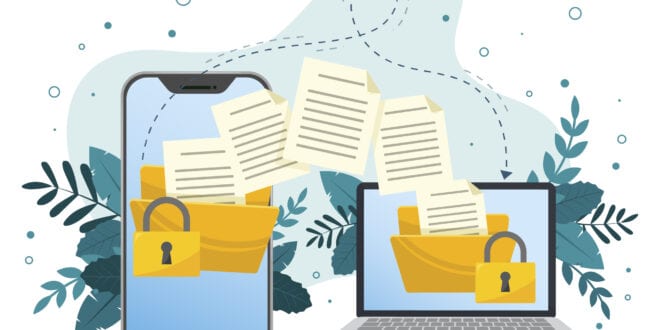The ability to share files online is a very useful option, which can save a lot of time because we don’t need to upload files on USB or external hard drive. Also, most email and cloud services have limited space for files. Therefore, if you need to send some collection of music, videos, or some great project, the best solution for that is to use some online platform for data sharing. Most of these services have a simple interface where you can easily drag and drop files and send the link to the recipient.

Some of the best and most popular file-sharing services are Hightail, FileShare, Zippyshare, FileWhopper, and Mediafire. While there are many benefits of using these platforms, you should know about the potential downsides and risks that they could bring. You should learn more about the potential issues with security on the internet, and how to avoid cyber-attacks and many other threats. Therefore, we are going to introduce you to the major risks of using file-sharing platforms in 2024.
1. Malicious Software

When you are using programs to share your files online, you should know that there is a chance that someone could intercept the link and get a copy of your files. The main issue is that the hacker could alter the files by adding malicious programs to them, which can lead to the spreading of malware in your PC. The malware and spyware programs are viruses and worms that could cause the malfunction of the software, hardware, or in the worst case, theft of your private files, bank account, e-wallets, and more.
Developers are companies that are creating operating systems, internet browsers, and other software, are often updating their systems for improved security. However, hackers are always trying to find new methods to infect all types of software with viruses. The best way to prevent any issues with malicious software is to have a proper antivirus program and to avoid visiting or downloading any content from unknown sources.
2. Identity Theft

While finding the most secure way of sending files online, the most important is to prevent potential identity theft. In case your PC gets infected by malware, the biggest threat is that a malicious program could share your private information, IP address, location, and any other data. In that matter, before you decide to use any file-sharing option, be sure that your computer has proper protection from cyber-attacks. When it comes to choosing a safe platform for sending content over it, you can check whether it is a trusted service by reading more about copyrights and reviews of other people.
3. Denial of Service

This issue is not so much of a threat to your security. However, if you are receiving a large package of files on your PC over some sharing platform, it might affect the speed of the internet and create problems with other software that you are using at the moment. That could be especially annoying if you are working on some online project at the same moment while downloading those files, which means that you should wait until you finish your work.
4. Broken FireWall

There are some types of sharing software that might demand you to turn off the firewall protection to become able to download data on your PC. However, you should know that opening a firewall could leave your computer without protection for a while, and there is a great risk for cyber-attacks during that time. On the other hand, some of those platforms might decrease the protection without you even knowing. Hackers are aware of that feature. Therefore, it is not a rare case that they are using the interception of file transfers as an efficient method to send malicious data to your computer.
Nevertheless, you should know that even the best file-sharing platforms also represent a potential risk. Because of that, you should always have installed antivirus protection, and never download any content from untrusted websites. A large number of people are susceptible to various issues with internet security because only around 20% of users are having proper protection and awareness about the real risks that could happen on the internet.
5. Issues with Legality

You should use these programs only for legal purposes like sharing your project on the work, private files, photos, videos, and more. However, you are risking prosecution if you choose to send official movies, video games, music, and a lot of other content because that could be considered as piracy in most countries. In that matter, if you want to give some video game or movie to your friend, the best way is to upload it on the USB drive.
Conclusion
There are many advantages of using file-sharing platforms, especially if that is related to some projects on your work because you can save a lot of time by sending or receiving some big files over the internet. When it comes to potential risks with this software, the best method to avoid any issues is to always have proper antivirus and firewall. Besides that, if you are only sharing data with your friends, family, and colleagues, the chances that you will pick up some malicious software are very small, and the only way for that is if some hacker manages to intercept the link that you are using for sharing of the files. However, even if a hacker succeeds in his effort to intercept the transfer, proper security on the PC will show that you should not download any data sent from that link.
If you need to share some more sensitive data, the most secure way is to use a software that has encryption as a safety measure. This way, even if someone manages to intercept the transfer, he won’t be able to open files in the link. When it comes to cloud services, which represent the most popular option for file-sharing today, the most secure solutions are iDrive, iCloud, OneDrive, and Google Drive. The problem is that most of these clouds have limited storage, and you will need to pay for a subscription and extended limits.
 Imagup General Magazine 2024
Imagup General Magazine 2024



